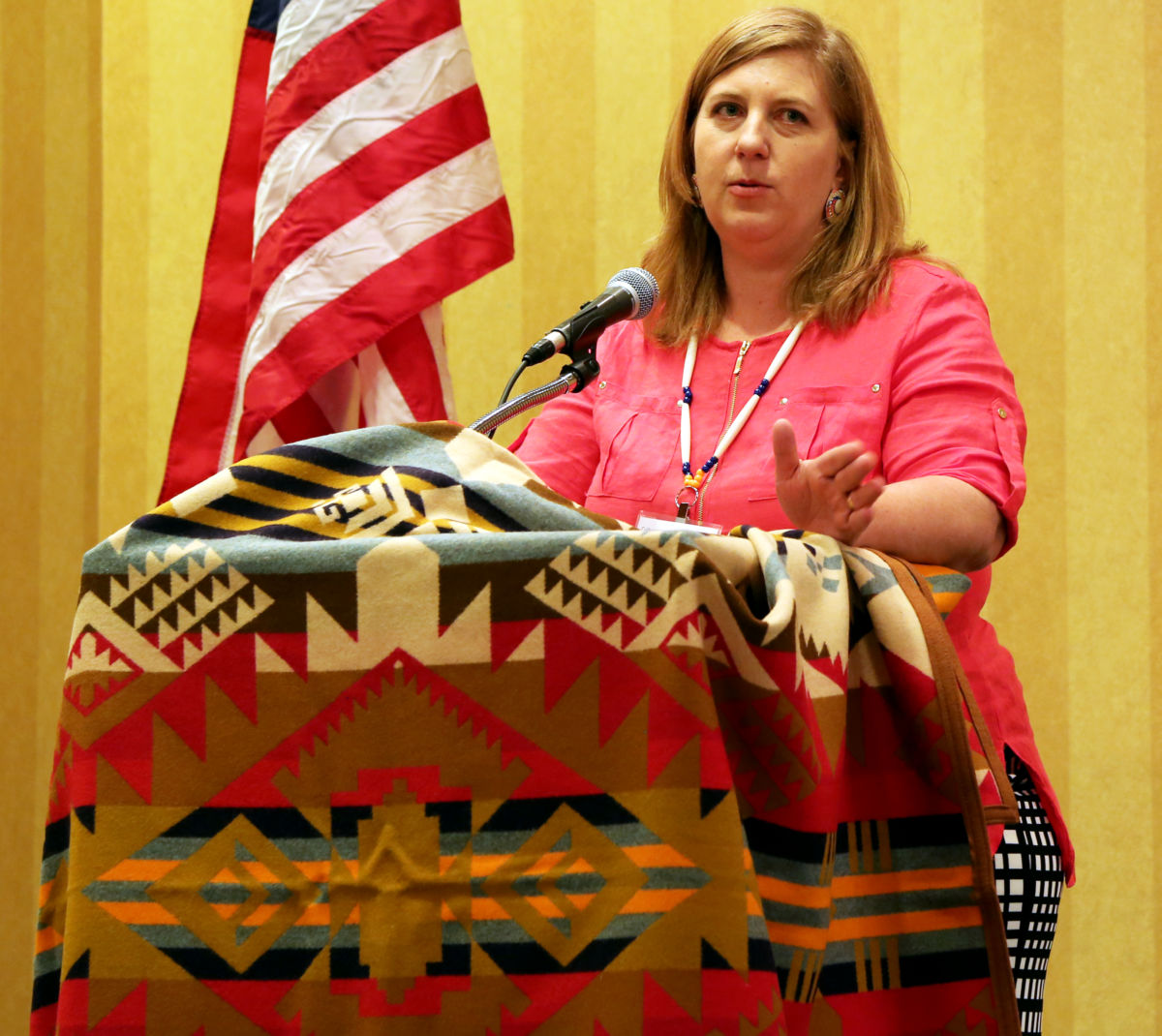Laura Laumatia worked a short reading assignment into her crash course in American Indian history.
She distributed classroom materials that described “Native American Suffering” — peoples, afflicted with disease and alcoholism, who abandoned their religious and hunting traditions as fur traders settled in the Northwest. The article’s conclusion was presented without rebuttal: “Americans even came up with the phrase ‘Manifest Destiny,’ which meant it was God’s will for the United States to extend from the Atlantic to the Pacific oceans.”

The article didn’t come from an Idaho classroom; it was used in Tekoa, a small community in southeastern Washington. But Laumatia, the lake management coordinator for the Coeur d’Alene Indian Tribe, uses the article for a college class she teaches on tribal sovereignty.
Laumatia and University of Idaho professor Mark Solomon brought an abridged version of their class to Boise Monday morning, for the kickoff of the Idaho Indian Education Summit. About 150 teachers attended the keynote talk.
This year’s theme for the two-day State Department of Education event is culturally responsive learning — a message state superintendent Sherri Ybarra stressed during her introductory remarks.
“We are enveloped every day in culture,” Ybarra said. “It is the glue that binds us together.”
Culturally responsive learning doesn’t simply respect and honor students’ diverse backgrounds. It engages and motivates students, Ybarra said.
In their class, Laumatia and Solomon don’t focus exclusively on the traditional view of tribal sovereignty — a focus on the historical and legal relationship between the tribes and the federal government. They also take a non-traditional approach, looking at the key role of tribal culture as an expression of sovereignty.
However, the erosion of tribal culture takes many forms.
The loss of tribal language represents the loss of a “major aspect” of sovereignty, Solomon said. Restoring the native foods that provided a staple to tribal nations — foods such as salmon and sturgeon — also nourishes the tribal culture.
But a lack of historical context poses another threat. American schools fall short of their potential when they fail to teach tribal history, Laumatia said. “It’s time to correct that.”
And there are glimmers of hope, she said.
The classroom materials on “Native American Suffering” and Manifest Destiny remain in use, several years after their publication. But Washington state has also adopted “wonderful” academic standards on tribal sovereignty, Laumatia said — and they are used statewide, not just in and around Indian reservations.
